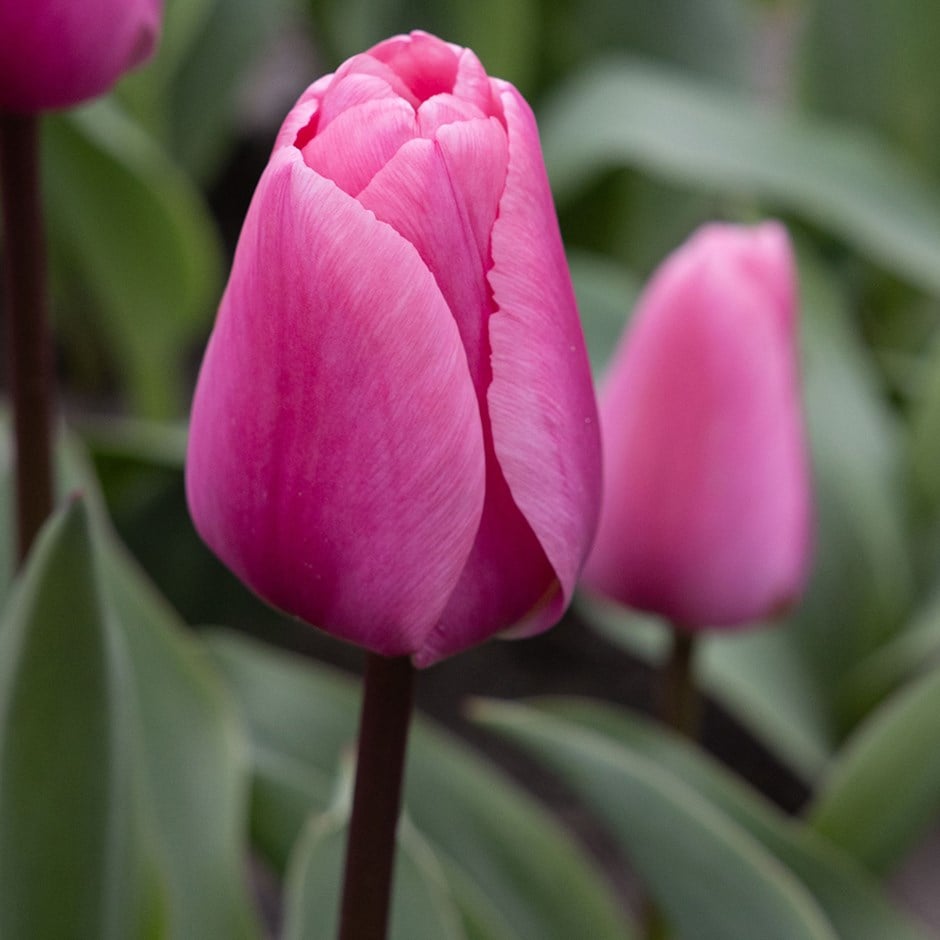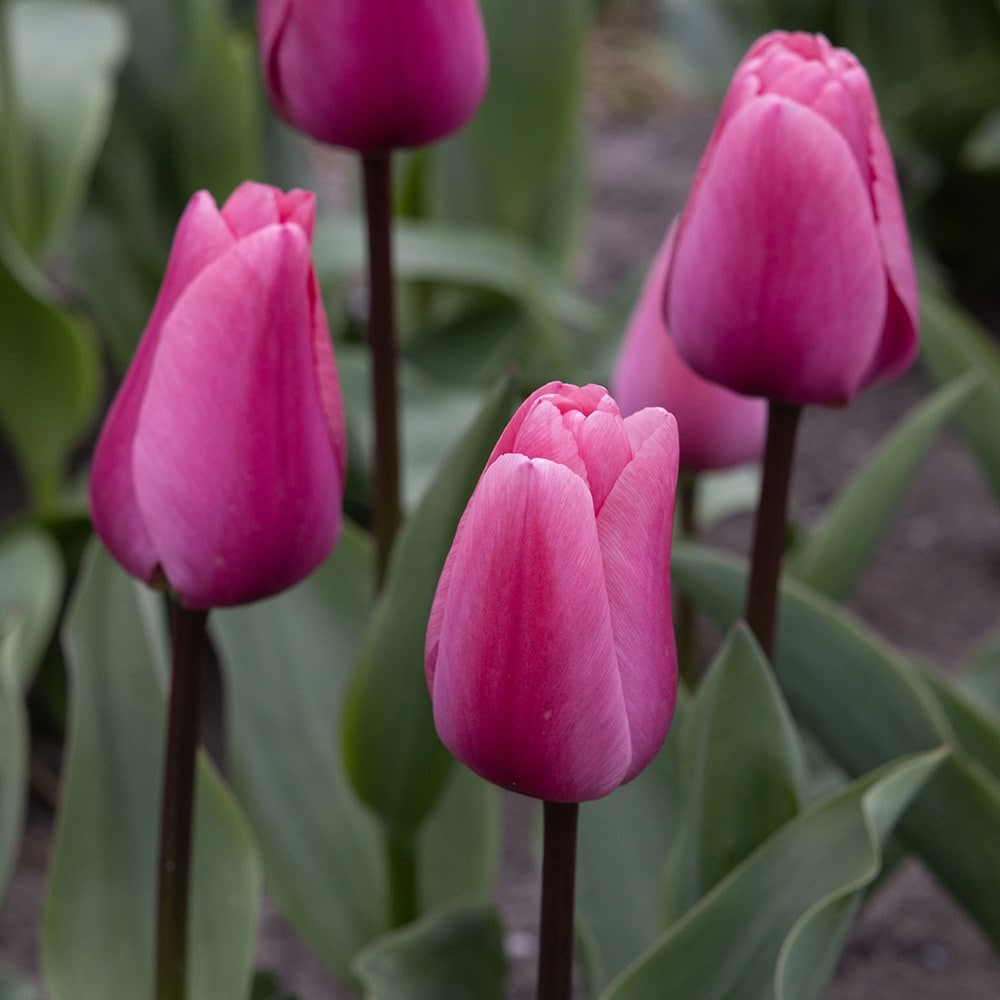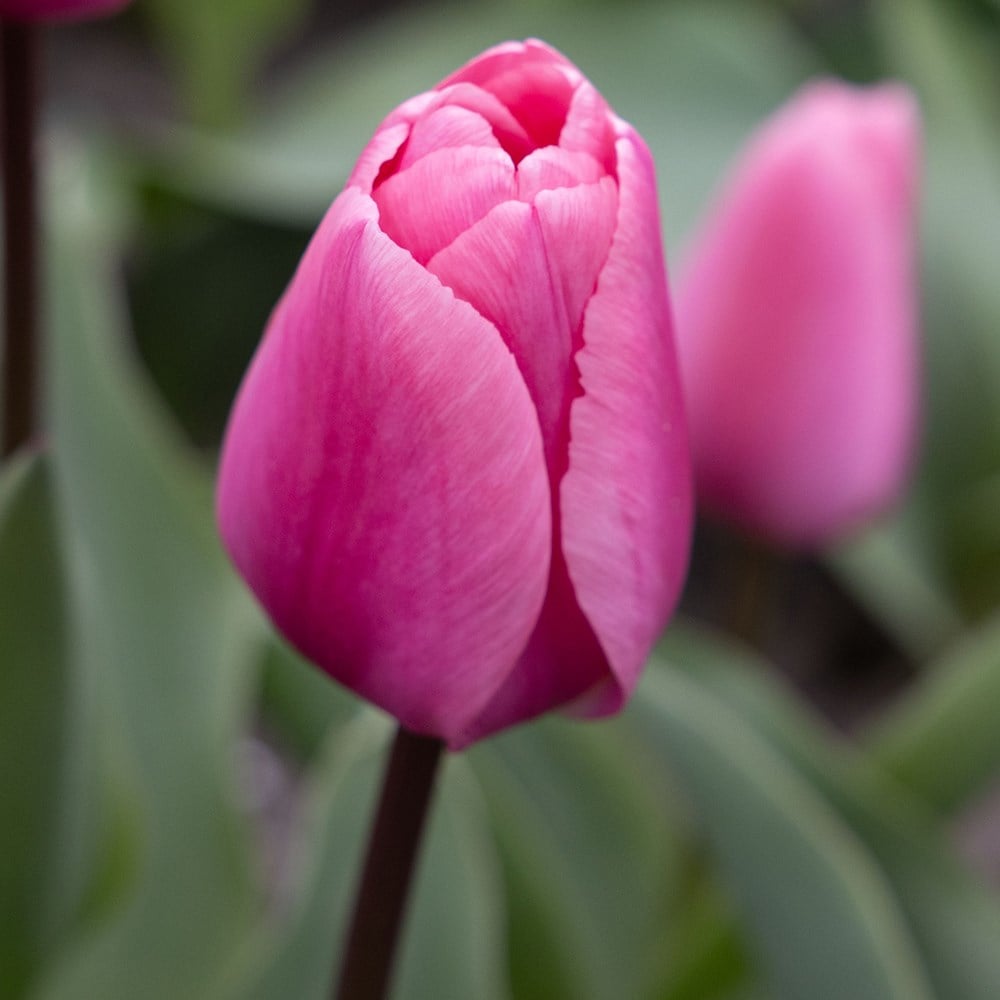Tulipa 'Big Love'
Darwin hybrid tulip bulbs
- 10 × bulbs
- £8.49 £9.99
- available to order from autumn
- 30 × bulbs
- £22.95 £27.00
- available to order from autumn
Delivery options
- Bulbs (only) £4.95
- Position: full sun
- Soil: moderately fertile, moist but well-drained soil, or general purpose compost for containers
- Rate of growth: average
- Flowering period: April to May
- Hardiness: fully hardy
- Bulb size: 11/12
Boasting sizable blooms atop robust stems, Tulipa ‘Big Love’ proves its resilience in windy settings. Its impressive flowers feature a white base with a captivating greyish-blue star, accented by a delicate yellow edge. These early-blooming bulbs not only add charm to your garden but also serve as a magnet for bees and butterflies. For an enchanting visual spectacle, pair them with tulips in shades of light pink, purple, and white, creating a truly breathtaking display.
Using fresh, good-quality compost, plant bulbs in pots from September to November. For borders, we advise waiting until after the first frosts (typically mid-October to early December depending on your location) to reduce the risk of potential disease such as Tulip Fire. Plant bulbs 15-20cm (6-8in) deep and 10-15cm (4-6in) apart in fertile, well-drained soil. Alternatively, allow 7-9 bulbs per 30cm sq or 60-75 bulbs per m². If you’re unable to plant your bulbs immediately, they can be stored in a cool environment with good air circulation. Remove all the packaging and place them in a loose-weave jute sack before labelling and hanging up in a dry, unheated garden shed or well-ventilated greenhouse.
In spring, when the plants are in active growth, apply a high-potash fertiliser (like Tomorite) each week until the leaves start to die back. Pinch off the spent flower heads as the petals fall, and let the stem and foliage die back naturally. The bulbs can then be lifted and discarded, or cleaned, dried and stored (as before) for replanting the following autumn.
In spring, when the plants are in active growth, apply a high-potash fertiliser (like Tomorite) each week until the leaves start to die back. Pinch off the spent flower heads as the petals fall, and let the stem and foliage die back naturally. The bulbs can then be lifted and discarded, or cleaned, dried and stored (as before) for replanting the following autumn.
- Humans: Harmful if eaten; skin allergen; Pets: Ornamental bulbs - not to be eaten


